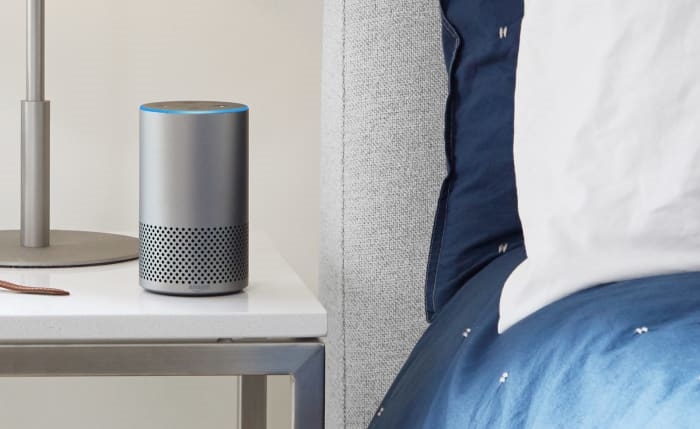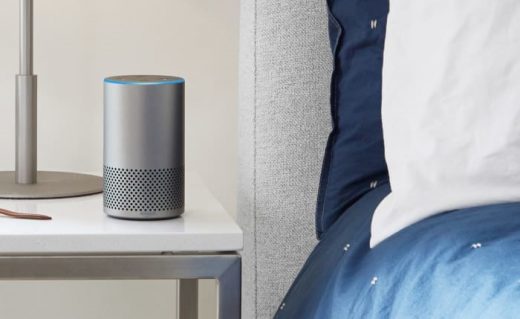Patent Reveals Amazon’s Efforts To Understand The Language Consumers Use With Alexa
Patent Reveals Amazon’s Efforts To Understand The Language Consumers Use With Alexa

A patent application made public on Thursday offers insight into Amazon’s efforts to better understand the language consumers use with Alexa, its voice assistant technology.
The patent’s abstract describes a system for capturing and processing portions of a spoken command that may occur before the word that wakes Alexa.
In other words, the technology identifies the words prior to the wake word to determine whether the command came prior to the wake word and uses pauses in speech to identify the beginning of the command. Then the audio clip would be sent to Amazon for processing.
Today, Alexa cannot understand commands when the wake word follows the main commend in the sentence or when the wake word falls in the middle of the sentence, per the patent titled Pre-Wakeword Speech Processing from inventors Kurt Piersol and Gabriel Beddingfield.
Some examples in the patent include “play some music Alexa, the Beatles please” and “play some music Alexa.”
This technology isn’t in use, according to Buzzfeed, citing an Amazon spokesperson. And just because developers filed for a patent doesn’t necessarily mean the company will use it in the future.
The patent application shows that the technology, which keeps a buffer or context, addresses privacy concerns of “always-on speech processing.” This means all the speech doesn’t need to be sent to Amazon and the device may be configured to store only up to 30 seconds of audio.
Knowing the context of the spoken command, however, could help Amazon more accurately target audio content to the user based on audio optimization or sponsored advertisements.
Research from voice experience agency Rabbit and Pork shows how voice-activated devices are becoming more intelligent and more intuitive. The report analyzed 10533 key phrases, looking at 23 verticals at keyword level to assess the trends answered by Google assistant during the past 12 months.
The findings, which focus on Google, reveal opportunities for brands diving into voice search and how it relates to traditional search engine results pages.
The research, which compared the first quarter of 2019 with the year-ago quarter, also identifies a new voice response known as Device Prompt, in which Google prompts users to move their query to their smartphone device.
(20)


